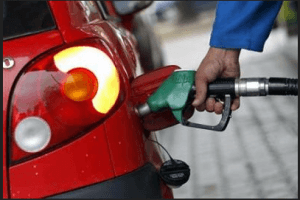Commercial drivers ask for reduction in petroleum taxes
 Commercial drivers in New Juaben South have asked for a reduction in petroleum taxes because of rising prices of petroleum products at the pumps.
Commercial drivers in New Juaben South have asked for a reduction in petroleum taxes because of rising prices of petroleum products at the pumps.
The price of petroleum products, particularly liquefied petroleum gas, diesel, and petrol, had risen persistently over the last two months with a litre of both diesel and petrol now costing almost GH₵10.00 as of Friday, March 18.
The situation had caused dissatisfaction among transportation operators, passengers, and the public, and resulted in increased transportation charges and high prices for goods and services, affecting living conditions.
According to a recent market survey conducted by the Ghana News Agency (GNA) on petroleum product prices, fuel prices in January 2022 were around GH₵6.30 per litre.
However, by February, the price had risen to GH₵7.50 per litre, resulting in a 15 per cent increase in transportation fares across the country, as well as an increase in the prices of goods and services.
Transportation fares from Koforidua to Accra increased from GH₵23.00 to GH₵27 for vehicles without air conditioners and from GH₵25 to GH₵29 for vehicles with air conditioners.
In addition, transportation fares within Koforidua town, particularly in Densuano Waterworks, was raised from GH₵2.30 to GH₵2.50.
By Friday, March 18, fuel prices had risen to GH₵10.90 per litre for both petrol and diesel, leaving many commercial drivers and operators eager for another transportation fare increase.
Speaking to some commercial drivers in the New Juaben South Municipality, Mr Alex Ametoh, a Koforidua to Accra bound driver, told the GNA that drivers were unable to contain the persistent increases because they were no longer making profit or breaking even.
“I earn GH₵680.00 per day by driving to Accra and back to Koforidua. I make GH₵300.00 in sales to my car owner and spend GH₵300.00 on fuel for my trips,” he said.
“After paying the packing fee and other levies, I’m left with GH₵30.00 as pocket money.”
Mr Ernest Nyarko, a taxi driver, who has been driving for seven years, said commercial drivers were waiting for a directive from the Ghana Private Road Transport Union (GPRTU) of the Trades Union Congress (TUC).
He said to meet their demand, another increase in transportation fares was required, even though it would have a negative impact on the lives of many people.
However, the transportation sector must also be sustained, he said, and urged the government to reduce taxes on petroleum products and find alternative energy sources.
There are at least seven taxes on fuel in Ghana. These include Energy Fund Levy, Sanitation and Pollution Levy, Price Stabilization and Recovery Levy, Energy Sector Levy, Special Petroleum Tax, Road Fund Levy, and Energy Debt Recovery Levy.
Ghana’s Chamber of Petroleum Consumers (COPEC) had also urged the government to review the general levies and tax elements on fuel pricing to ensure fairly stable fuel prices in the country.
Source: GNA
